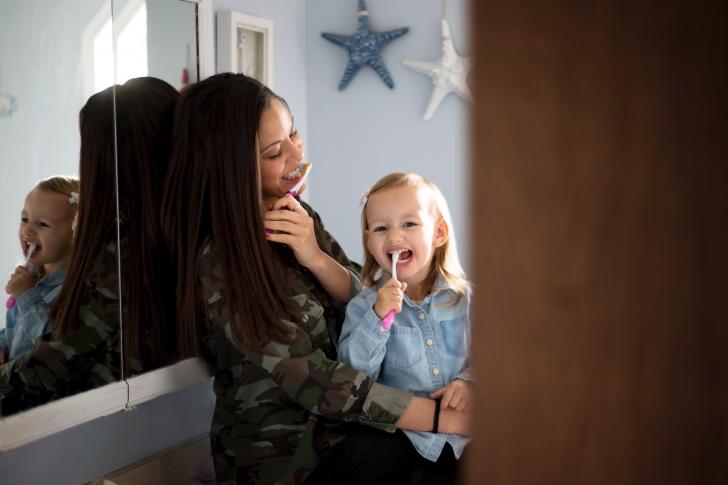
Parenting involves loving, guiding, advising, coaching, teaching, and protecting one’s child from harm as s/he learns how to navigate the flow of life independently. A form of extreme parenting making news these days is helicopter parenting; the term describes parents that hover so close to their children that the children never develop the important psychosocial skills that make them well-adjusted successful adults.
Problems on campus
College and university administrators are growing increasingly alarmed at the number of students who enter college unprepared to tend to their daily needs, such as getting out of bed in time for class unless a parent calls to wake them up. The parents of “helicoptered” kids orchestrate the student’s extracurricular activities and daily decisions, provide too much homework help or do it all themselves, and lobby professors for better grades when student performance doesn’t meet expectation.
When parents hover so closely, the child struggles with the psychological maturity that makes him/her a happy socially active college student. These students just don’t know how to cope with the minutia of everyday living and frequently suffer emotionally or engage in risky behaviors in the hope of boosting fragile egos.
What college counseling centers see
A 2013 survey study of college counseling centers finds college students are seeking psychological counseling in greater numbers than ever before. One reason behind the increasing need for psychological help is thought to be helicopter parenting. The survey revealed:
- 95% of college counseling centers describe the increasing number of students experiencing significant psychological problems as a growing concern on campus.
- 70% reported an increase in severe psychological problems from the previous year.
- 41.6% of the problem is anxiety.
- 36.4% is depression.
- 35.8% is relationship problems.
- 24.5% of students seeking psychological help ask for psychotropic prescriptions.
- 21% of students seek help for severe mental health concerns.
- 40% experience mild mental health concerns.
- 19% of counseling center directors say their facility is not adequately staffed to handle this degree of psychological need.
Risky behaviors
A study published in 2011 identified helicopter parenting as having a negative effect on the psychological well-being of college students. It also identified helicopter parenting as a motivating factor behind students’ use of prescription drugs to treat anxiety and depression and pain pills for recreational consumption. Students smoking and binge drinking are also associated with helicopter parenting.
Love or ego
While helicopter parenting may seem to be a form of loving over-protection, some experts see it as too much physical presence without the psychological or emotional support children need. Some experts suggest this form of smother love is more about parents’ egos than what’s best for the child.
Emotionally fragile student
Hovering parents tend to lavish praise on their children for even the slightest accomplishments and contribute to a child’s feeling of narcissism. When the need for independent performance and thinking skills are met with unbiased judgments in a college setting, the emotionally fragile helicoptered student can become overwhelmed by feelings of inadequacy and failure.
What drives helicoptering
Some experts find the rise in helicopter parenting matches the rise in sales of cell phones and other mobile telecommunications devices.
Helicopter parenting is most common in the Northeastern US and along the West Coast, with the greatest intensity in cities. Girls are more likely to be helicoptered than boys.
Helicoptering has been growing for decades. In 1969, 48% of all school-age children either walked or rode bikes to school without parental accompaniment. In 2009, only 13% of kids made it to school alone. Childhood safety is not the issue; this drop in childhood independence does not correspond to crime rates or other dangers to children.
Helicoptered adult children on the job
As helicoptered children make their way into the workforce, employers and job recruiters are finding the same parental reluctance to let go. This too-close involvement is not always in the best interest of the job-hunting adult child.
Parents are more likely in recent years to arrange for or accompany an adult child to a job interview, to petition for the child’s hiring, and to negotiate salary and benefits. Seventy percent of young adult job seekers express need to discuss a job offer with parents before responding to it. Once hired, emotional and mental immaturity often leads to poor job performance, low pay, and career instability.
Sources:
- Savedge, Jean. "Helicopter parenting causes college struggles." Mother Nature Network. MNN Holding Company, LLC, 3 Sept. 2015. Web. 12 Sept. 2015.
- LeMoyne, Terri, and Tom Buchanan. "Does "Hovering" Matter? Helicopter Parenting and Its Effect on Well-Being." Sociological Spectrum: Mid-South Sociological Association 31.4 (2011). Taylor & Francis Online. Web. 12 Sept. 2015.
